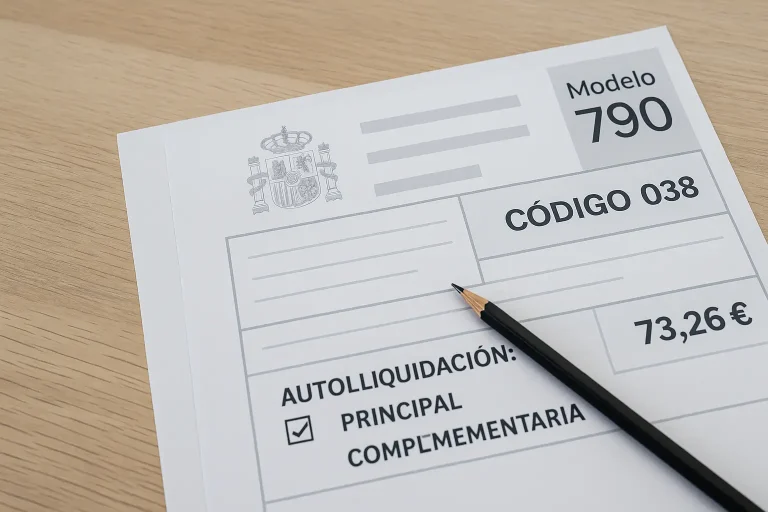
Digital Nomad Visa Spain for Canadians
Spain offers Canadian citizens a quick and straightforward path to get a 3 year residency (which can be prolonged every 3 years).
Both freelancers and employed remote workers qualify, with the latter eligible for special Bekham regime.
For canadian remote workers, who work as employees, Spain’s Digital Nomad Visa presents an unprecedented opportunity to enjoy life in a rich and sunny environment while getting hefty tax benefits through “Beckham Law” and access to Spanish healthcare.
Table of Contents
Eligibility Criteria for Canadians
To qualify for Spain’s Digital Nomad Visa as a Canadian, you generally need to meet the following criteria:
- Non-EU/EEA Citizenship: You must hold a passport from Canada (or a non-EU country).
- Work Arrangement: At least 80% of your work should be conducted for companies or clients located outside of Spain. You may have up to 20% of your professional income tied to Spanish companies or clients.
- Sufficient Financial Means: You must demonstrate a steady income or savings that prove you can sustain yourself (and any dependents) without relying on Spanish public funds.
- Health Insurance (if you are applying for Visa and not Residence): You must have private health insurance that covers medical expenses in Spain equivalent to local public health coverage.
For a detailed list of requirements check out this post.
Spain Canada Social Security Agreement
Spain and Canada have recently signed a bilateral agreement on social security – a game-changer for Digital Nomads. This agreement – now in force for eligible provinces – allows remote workers from Canada to leverage their existing Canadian social security coverage (via the CPT125 Certificate of Coverage, for example) instead of having to register and contribute to the Spanish system.
Under the agreement, Canadian teleworkers residing in Canada’s Atlantic provinces – Nova Scotia, Newfoundland and Labrador, New Brunswick, and Prince Edward Island can present proof of their coverage from Canada when applying for their visa.
Important: Residents of Quebec remain excluded and must register directly with Spain’s social security system if seeking the digital nomad visa
Key Features
- eliminated double tax
- streamlined healthcare requirements for visa applicants
- access to Spanish healthcare
- long-term pension rights in both countries
and more.
No Double Social Security Payments:
The most direct advantage is avoiding dual contributions. The agreement eliminates this double tax on earnings. A Canadian employed by a Canadian company can continue paying into CPP (and Employment Insurance) only, and is exempt from Spanish social security taxes for up to 5 years.
This is a major cost saving – Spanish social security contributions are substantial (around 30% of salary paid by the employer, plus ~6% by the employee in the general regime). By remaining on CPP, the worker and employer typically pay a lower combined rate (the CPP contribution rate is about 11% combined, up to an annual earnings cap). This difference can save thousands of euros per year in mandatory payments.
Employed Digital Nomads working in Spain can now access public healthcare based on their contributions in Canada.
Those working across both countries can move seamlessly, knowing their social security benefits are portable and recognized on both sides.
Continued Home-Country Benefits Coverage
By staying in the Canadian system, the digital nomad maintains uninterrupted CPP coverage and builds Canadian pension credits while abroad.
They won’t suffer a gap in their CPP contribution history, which is important for retirement planning. Meanwhile, because they are treated as if still contributing in Canada, the period working in Spain counts as Canadian residence/contribution time for benefit eligibility (e.g. it will count toward the 10-year residency needed for OAS pension).
Canadian remote worker can continue to pay into CPP (and possibly Canadian EI) as if they were at home, and they will not owe Spanish social security contributions during the allowed period. It also means they retain full retirement.
On the Spanish side, if they later decide to stay long term and contribute to Spain’s system, the earlier Canadian contribution years can help qualify for a Spanish pension as well.
In short, the agreement secures their long-term pension rights in both countries even as they move around.
Health Coverage and Insurance Savings
Spanish immigration rules normally require non-EU visa applicants to have private health insurance in Spain unless they are covered by public health. The social security agreement creates a pathway for health coverage as well. According to Spain’s consulate, if an international social security agreement allows the worker to stay on their home country’s coverage while in Spain, the applicant does not need to purchase Spanish health insurance – instead they can submit the certificate of coverage showing entitlement to home-country social security/health coverage.
In practice, Canada’s medicare provincial health plans have limited overseas coverage, so many Canadians still get private insurance; however, Spanish authorities will accept the certificate of coverage in lieu of the insurance policy for visa purposes.
This can save the cost of a Spanish private health insurance plan (hundreds of euros annually) and confirms that the nomad will have access to necessary healthcare. Essentially, the agreement streamlines healthcare requirements for visa applicants by leveraging the home country’s system.
Simplified Tax Filings
Social security contributions are often considered “payroll taxes.” By only paying in Canada, the individual’s tax filings are cleaner – they won’t have Spanish social security taxes withheld or assessed, just the Canadian contributions as usual.
Moreover, While the tax treaty and Beckham Law are distinct from the social security agreement, together these measures mean a Canadian in Spain can avoid most double payments – no double social security contributions and no double income tax – resulting in substantial tax advantages. The individual can thus plan their finances with confidence that they won’t be paying twice on the same earnings.
Streamlined Residency Applications:
For Canadians applying for Spain’s DNV, the agreement simplifies the process of demonstrating compliance with social security requirements. Applicants can provide proof of contributions to Canada’s system.
Benefits Beyond Social Security
Tax Advantages
Spain and Canada have a separate tax treaty to prevent double income taxation, so the nomad will generally pay income tax in only one country (usually Spain if they become resident, or Canada if they remain resident there).
Digital nomads who are employed and become Spanish tax residents can apply for a special expat tax regime (often referred to as the “Beckham Law”), which reduces the income tax rate to 24% on earnings up to €600,000. This can result in significant savings compared to standard tax rates.
Cost Savings
Living costs in Spain are generally lower than in Canada. With affordable housing, lower daily expenses, and a relaxed lifestyle, many digital nomads find that their money goes further in Spain.
Procedural Simplifications for the Digital Nomad Visa
Certificate of Coverage in Visa Application:
One requirement for the visa is proof of either Spanish social security affiliation or an international coverage certificate if applicable. Thanks to the agreement, Canadians (outside Quebec) can request a Certificate of Coverage (form CPT125) from Canada’s authorities (Canada Revenue Agency) before moving. This certificate verifies that the worker is and will remain subject to CPP in Canada during their assignment in Spain. Spanish consular instructions explicitly note that “there is a bilateral agreement on social security between Spain and Canada” and that a Canadian teleworker’s “applicable legislation certificate” (certificate of coverage) can be used to meet the social security requirement for the visa.
The benefit is that the Canadian remote worker does not need to pre-register with the Spanish Social Security system or have their employer set up a Spanish payroll, which would be complicated. The certificate effectively stands in place of enrolling in Spanish social security during the allowed period. This makes the application more straightforward: one simple form from Canadian authorities rather than navigating Spanish bureaucracy upfront.
Exception for Digital Nomad Spain Quebec Applicants
As mentioned, the Canada – Spain agreement doesn’t cover Quebec-pension contributors. The Spanish consulate in Montreal advises that teleworkers residing in Quebec cannot rely on the Canada – Spain certificate. Instead, a Quebec-based applicant must follow the standard route: their employer may need to register with Spanish Social Security and enroll the worker, or the individual must register as self-employed (autónomo) in Spain and pay into Spanish social security, at least at the start. This is a more involved process, requiring additional paperwork (Spanish social security registration, obtaining a Spanish social security number, etc.) before or during the visa application. For Canadians from other provinces, the agreement sidesteps these extra steps, making the visa process much faster and easier.
Health coverage without buying new insurance
With the certificate of coverage in hand, Canadian applicants also fulfill the visa requirement for health coverage without buying new insurance, as noted earlier. Spanish authorities will accept the certificate as proof that the person is covered by a public system. This not only saves money but also paperwork (no need to find a Spanish-approved insurance, get it translated, etc.).
Moreover, by proving they remain under Canadian social security, applicants reassure Spanish immigration that they won’t become a burden on Spain’s system during their stay. This likely makes the approval smoother.
What’s Next?
If you’re a Canadian considering Spain’s Digital Nomad Visa schedule a free call with us to get started on your application!


